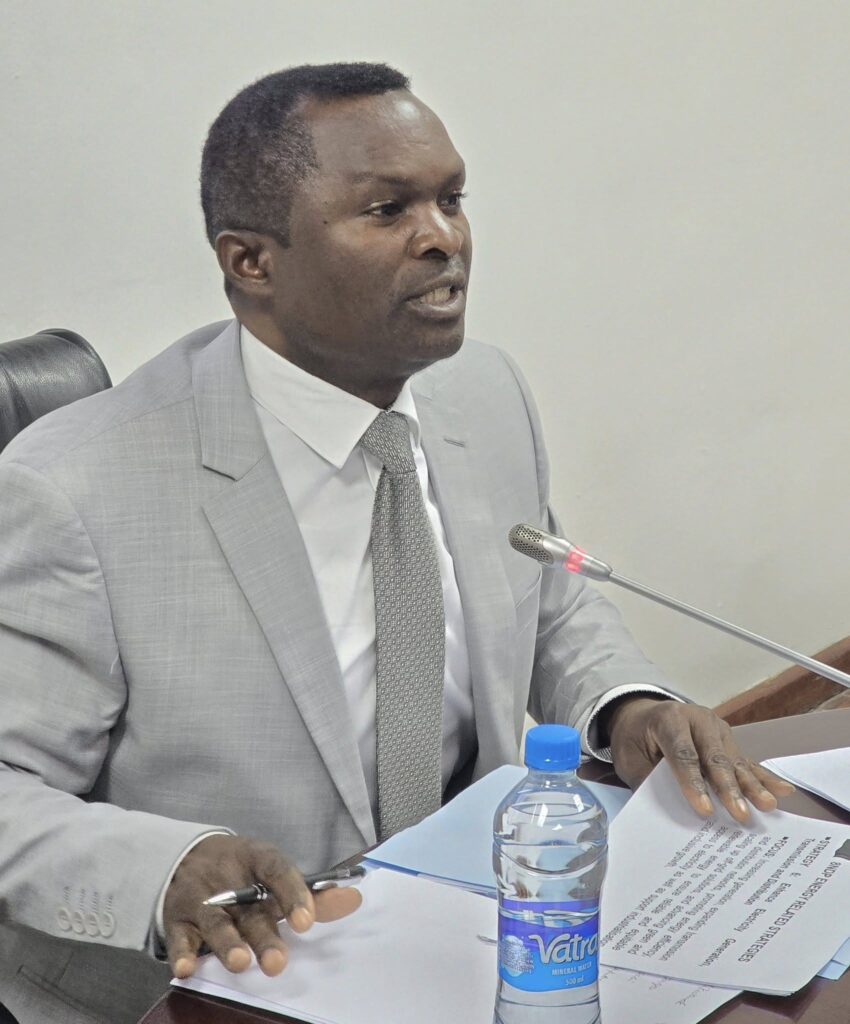Ministry of Energy Highlights Major Milestones in Zambia’s Power Sector Transformation
The Ministry of Energy has reaffirmed its commitment to delivering a modern, resilient, and inclusive energy sector aligned with Zambia’s Vision 2030.
Appearing before the Parliamentary Committee on Budget and Planning at Parliament Buildings, Permanent Secretary for Electricity Eng. Arnold Simwaba presented a comprehensive update on progress achieved under the Eighth National Development Plan (8NDP).
He was accompanied by senior officials from the Energy Regulation Board (ERB), ZESCO Limited, and the Rural Electrification Authority (REA).
Eng. Simwaba highlighted key sector reforms, including the introduction of the Energy Single Licensing System, Net Metering Regulations, and the Electricity Open Access Regulations, all designed to create a more attractive investment environment.
He noted that electricity access had improved significantly, with rural coverage now at 34 percent and urban access reaching 80.3 percent. The share of renewable energy in the national grid currently stands at 6.29 percent.
In terms of rural electrification, more than 8,390 households have been connected to electricity through 56 projects—surpassing the 2024 target. Public-private partnerships are also bearing fruit, with major investments such as the 300 MW Maamba Coal Power Plant and the expansion of Copperbelt Energy Corporation’s solar capacity from 34 MW to 94 MW.
The country has also recorded a reduction in households using charcoal for cooking, dropping from 64 percent to 57.6 percent. Furthermore, off-grid solar mini-grids have been commissioned in Mumbwa, Chilubi, Zambezi, Chama, and Sinda to improve energy access in remote areas.
However, Eng. Simwaba acknowledged that challenges remain, including drought-related setbacks, funding gaps, and delayed infrastructure projects affecting grid connections and transmission expansion. Despite these obstacles, the government remains committed to staying on course with energy reforms.
In the petroleum subsector, the Permanent Secretary reported that private sector procurement now stands at 100 percent, exceeding the 90 percent target. The Ministry is also working on feasibility studies for new fuel pipeline connections with Zimbabwe and Tanzania. Additionally, a framework is being developed to introduce biofuel blending, targeting a 5 percent ethanol mix in unleaded petrol.
To achieve long-term energy security, Eng. Simwaba called for increased investment, the adoption of cost-reflective tariffs, accelerated digitalisation, and strengthened collaboration between public and private stakeholders.
He emphasized that these measures are critical to meeting 8NDP objectives and ensuring affordable, reliable, and sustainable energy for all Zambians.
“Together, we are powering Zambia’s growth,” said Eng. Simwaba. “With innovation, collaboration, and continued investment, we can meet our national goals and provide clean, modern energy to every corner of the country.”



